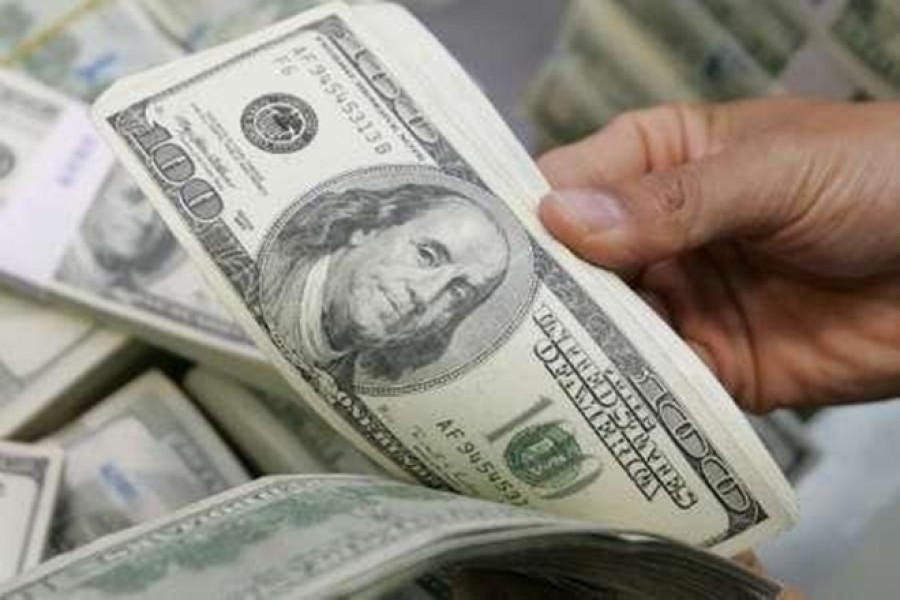
Published :
Updated :

The country's gross central-government debt in foreign-currency denomination has increased largely in recent times, thanks to a highly volatile exchange rate in the forex market.
The government has long been trying to stabilise the forex market as it needs foreign currency to execute development projects.
The country's forex-market volatility began following the Ukraine war in February 2022, leading to a large depreciation of local currency against US dollar.
Even the central bank of Bangladesh imposed many restrictions to lower the volume of imports as the foreign exchange reserves had been worsening soon after the Ukraine War.
Foreign currency-denominated loans by the government surged by more than 40.5 per cent to September 2023 over the same period a year earlier, according to Bangladesh Bank statistics.
Bangladesh received $79.5 billion worth of foreign currency-denominated loans or approximately 80 per cent of total debt until September 2023.
It was just $56.6 billion in September 2022.
Economists believe such a rise of the foreign currency denomination in an unstable financial market has many risks, including repayment risk.
They said the capacity to repay would be costly following the depreciation of the local currency without raising the resources.
Bangladesh's local currency has weakened by around 35 per cent over a year, according to them.
"Yes, foreign currency-denominated debt has been rising fast in the country in recent times," said Dr Ahsan H Mansur, executive director of the Policy Research Institute of Bangladesh or PRI.
He said the government had been taking many foreign funds to execute its development projects.
"This is worrying as it is taking place in an unstable time," cited Dr Mansur of the leading local think tank.
Bangladesh is also taking loan support from the International Monetary Fund (IMF) to stabilise its foreign market.
The IMF may give a total of $4.7 billion loan to Bangladesh under Extended Credit Facility (ECF) and Extended Fund Facility (EFF).
The country has so far received two instalments.
Independent economist Dr Zahid Hussain suggested that Bangladesh try to raise the resources, saying that the government was now depending on foreign resources for development projects and budget deficits.
According to him, such loans are expensive as Bangladesh will require more local currency to repay as it has depreciated much against dollar.
In the meantime, the local currency debt stood at $20.4 billion or around 20 per cent of the total central-government debt. The country's total central-government debt stood at $99.9 billion as of September 2023.
The long-term debt with payment due of more than one year stood at $93.4 billion during the period under review. On the other hand, the short-term debt with payment due of less than one year stood at $6.3 billion.
jasimharoon@yahoo.com


 For all latest news, follow The Financial Express Google News channel.
For all latest news, follow The Financial Express Google News channel.